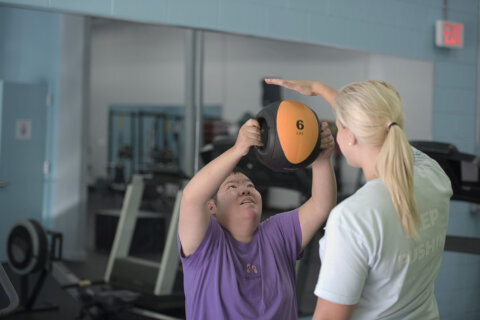Women across the D.C. region and worldwide will honor World Menopause Day on Wednesday, Oct. 18. The annual call to action is a chance for women to get support, treatment and mentally change the way they view this major life change.
“Most women are not in a friend group where they have the space to learn about menopause. So really, it’s just a concerted effort to say ‘on this day, we are going to be very intentional about talking about menopause,'” said Jenna Perkins, a nurse practitioner who specializes in complex gynecological and sexual health care at DiscovHER Health in Old Town Alexandria, Virginia.
She said more women are speaking out about the physical and psychological changes that come with menopause, unlike previous generations.
“It does affect every single aspect of what it means to be a woman,” she told WTOP. “Everything starts to change, and we have the ability to speak out. Social media is a big part of that. We have more opportunities for us to talk about these things and have our voices really heard.”
Menopause is caused by a natural, steady decline in reproductive hormones and affects most women in their late 40s or early 50s. The condition is usually signaled by 12 straight months without a period. Symptoms typically include hot flashes, night sweats, mood swings and weight gain, according to the Cleveland Clinic.
But, Perkins said, for some women, discussions with a doctor come sooner than later as they may see signs of early menopause.
And sometimes, doctors misdiagnose the root cause of their symptoms.
“In your 30s and in your 40s, even in postpartum, we can have some of these symptoms creep in,” she said. “It’s not just your period stopping that is the only symptom of menopause. You can have symptoms before your period stops.”
Perkins said she would also like to see more meaningful discussions from health care workers on how they can take a holistic approach to treating symptoms.
For her, World Menopause Day is the ideal time to spark those talks.
“Health care traditionally in the U.S. works in silos,” she said. “You see one doctor for skin and another for gynecological health and another person for depression. We need to look at the patients in front of us and say, ‘what are the symptoms you’re experiencing, and can we address all of you?’”








